Article not found
This article is no longer available. But don't worry—we've gathered other articles that discuss the same topic.
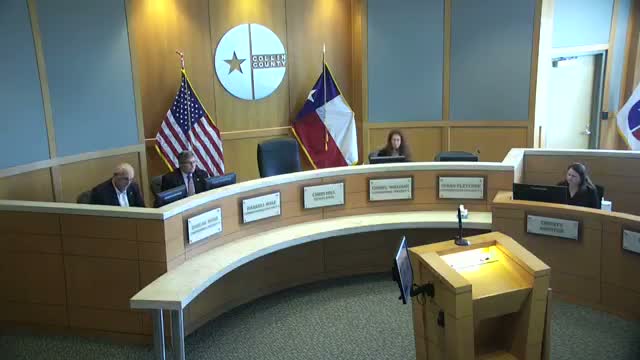
County judge says Collin County will need 11 county courts of law by 2030, cites OCA workload data
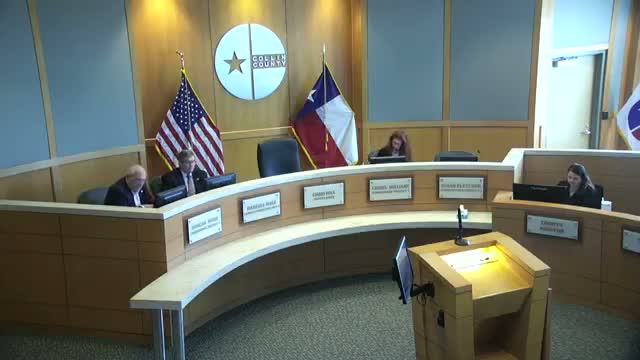
Commissioners hold electronic bail-bond items pending liability review
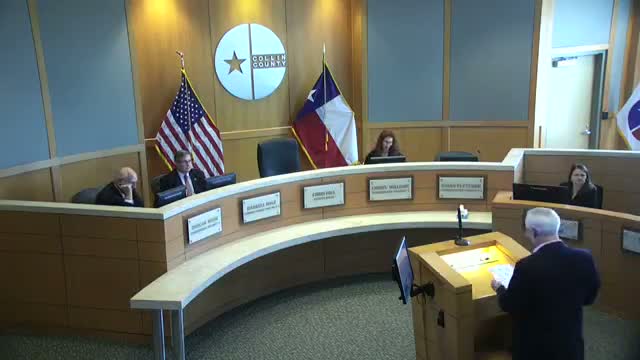
Commissioners approve two replat public hearings for Hudson Addition and No Bad Days East
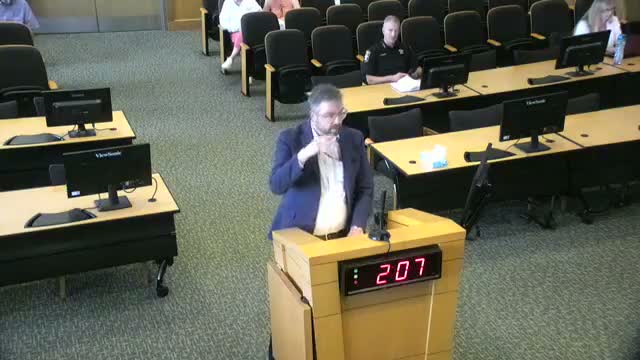
County staff outlines several state bills that could affect courthouse space, procurement and elections
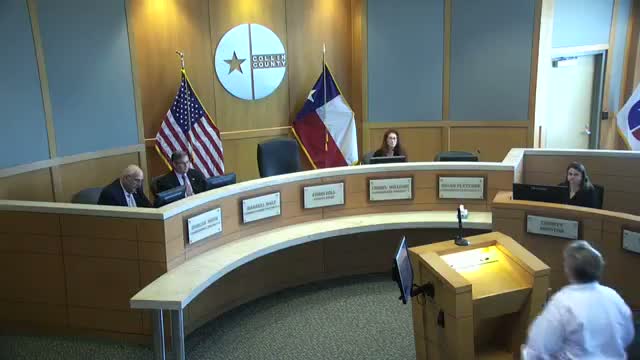
McKinney nonprofit requests county opioid-funding for adolescent treatment
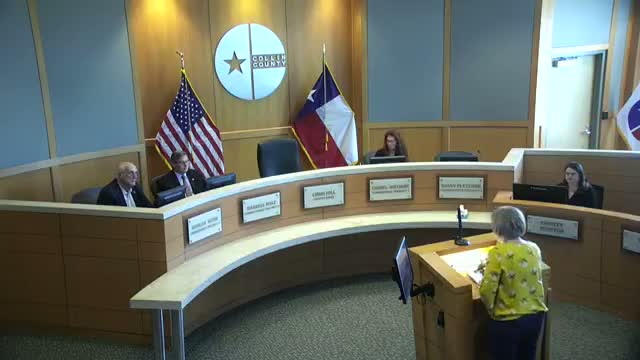
Public commenters urge delay or contract safeguards for ES&S maintenance amid VVSG and executive-order concerns
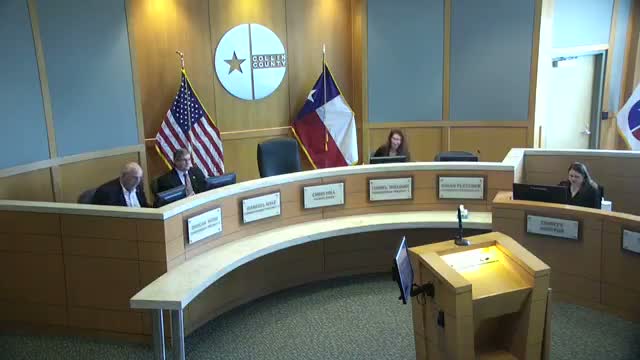
Commissioners hold electronic bail-bond items after staff liability concerns

County court judge: Collin County needs two more courts now and 11 by 2030, urges courthouse expansion

McKinney nonprofit asks Collin County for opioid-funding support for adolescent treatment
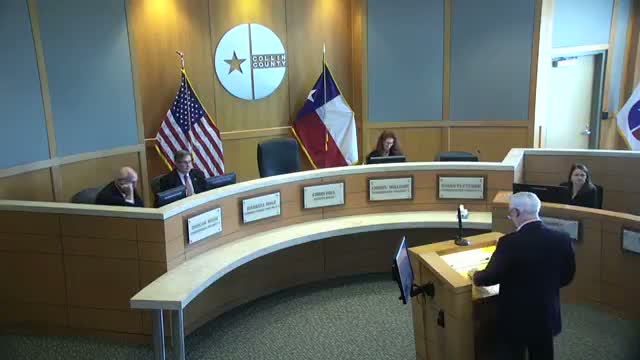
Commissioners approve two replat items and several consent motions unanimously

